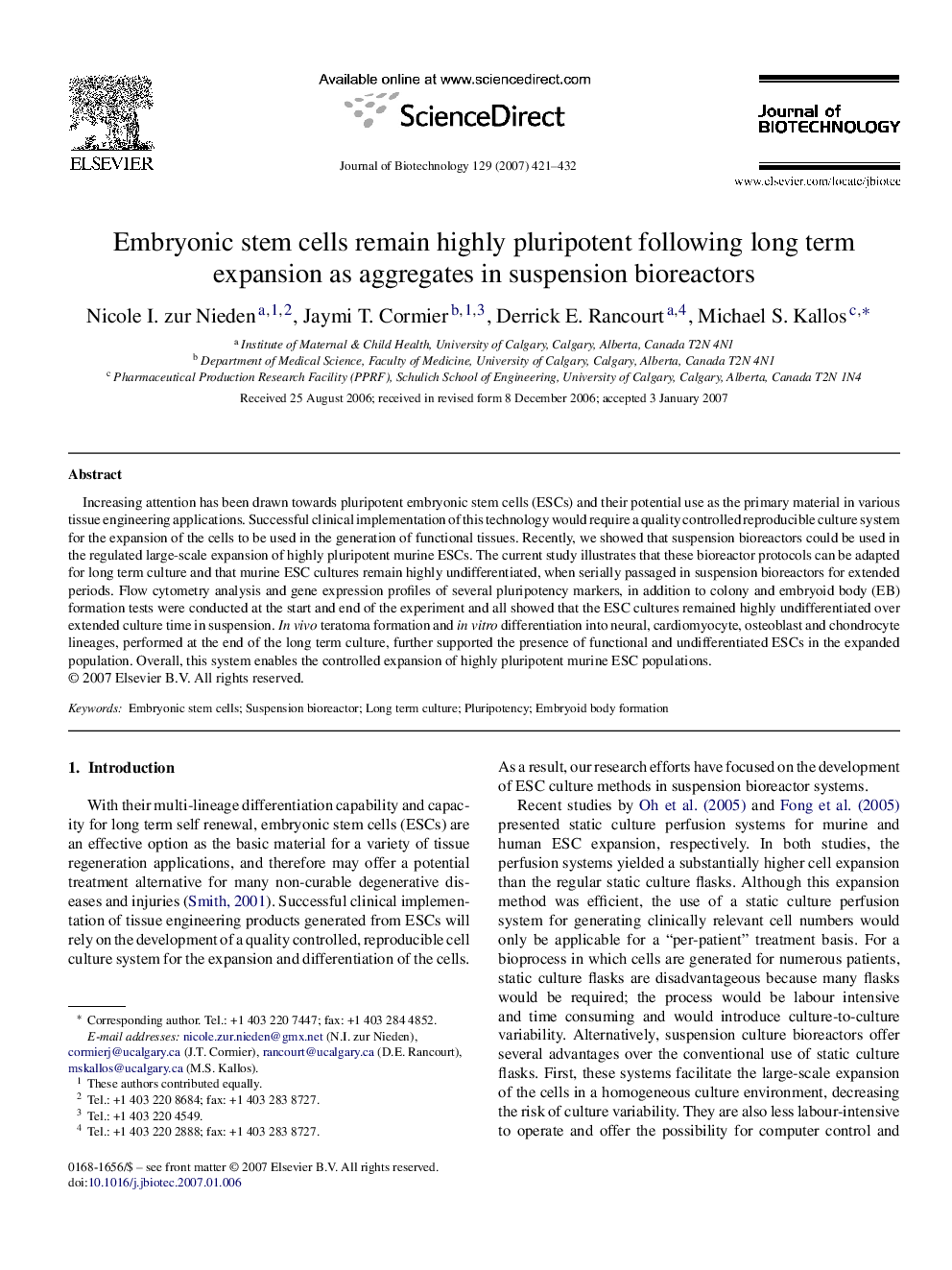| Article ID | Journal | Published Year | Pages | File Type |
|---|---|---|---|---|
| 6492296 | Journal of Biotechnology | 2007 | 12 Pages |
Abstract
Increasing attention has been drawn towards pluripotent embryonic stem cells (ESCs) and their potential use as the primary material in various tissue engineering applications. Successful clinical implementation of this technology would require a quality controlled reproducible culture system for the expansion of the cells to be used in the generation of functional tissues. Recently, we showed that suspension bioreactors could be used in the regulated large-scale expansion of highly pluripotent murine ESCs. The current study illustrates that these bioreactor protocols can be adapted for long term culture and that murine ESC cultures remain highly undifferentiated, when serially passaged in suspension bioreactors for extended periods. Flow cytometry analysis and gene expression profiles of several pluripotency markers, in addition to colony and embryoid body (EB) formation tests were conducted at the start and end of the experiment and all showed that the ESC cultures remained highly undifferentiated over extended culture time in suspension. In vivo teratoma formation and in vitro differentiation into neural, cardiomyocyte, osteoblast and chondrocyte lineages, performed at the end of the long term culture, further supported the presence of functional and undifferentiated ESCs in the expanded population. Overall, this system enables the controlled expansion of highly pluripotent murine ESC populations.
Related Topics
Physical Sciences and Engineering
Chemical Engineering
Bioengineering
Authors
Nicole I. zur Nieden, Jaymi T. Cormier, Derrick E. Rancourt, Michael S. Kallos,
